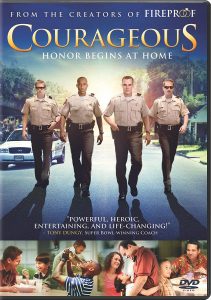Christian married couples are called to love their spouses with a Christ-like love that is patient and kind, with no selfish or unjust anger, envy, or other unloving emotions (1 Cor. 13:4-7).
Don, a Christian realtor, does not love his wife Jaimee with a Christ-like love when she forgets to give him a phone message about an important real estate deal. Don yells angrily: “How could you forget the phone message? You’re so inconsiderate! Promise me you will never forget any of my phone messages again!”
St. Francis de Sales warns Christians that anger can turn into hatred. Couples can deal with anger effectively by managing their anger and, most of all, by following Jesus with love, wisdom, and other Christian virtues. Anger management helps couples grow from an unhealthy anger to a normal, supposedly healthy anger. Following Jesus virtuously helps couples grow further towards a Christ-like, anger-free marital love.
Moving from unhealthy to “healthy” anger
Anger management experts help couples with unhealthy anger move towards a normal “healthy” anger by managing their anger with such things as timeouts, deep breathing, empathy, cognitive therapy, and communication. With “healthy” anger, couples act constructively and reasonably. But they still feel angry at times. They typically experience a few episodes of moderate anger a week, often with some yelling, according to an American Psychological Association report.
“Healthy” anger is better than unhealthy anger. But “healthy” anger is not all it’s cracked up to be. Suppose a couple’s “healthy” anger lingered for the rest of the day or evening, and suppose the couple experienced also a few episodes of “normal” envy every week, and “normal” anxiety, and other negative, un-Christ-like emotions. That’s a lot of negative, un-Christ-like emotional turmoil!
Jesus calls couples to grow from an unhealthy or “healthy” anger towards a Christ-like, anger-free marital love. But many anger management experts, and even some Christian marriage experts, say that we cannot help being angry at times, so we are not morally responsible for our angry feelings or for other emotions.
Growth towards a Christ-like, anger-free marital love
Jesus can help couples grow towards a Christ-like, anger-free marital love. We couples are often morally responsible for our emotions, and we can become Christ-like emotionally. Jesus teaches that “anyone who is angry with his brother will answer for it before the court” (Matt. 5:22). St. Augustine writes that our emotions are morally good if our love is good, and morally evil if our love is evil. St. Thomas Aquinas teaches that our emotions are morally good if they are reasonable, and morally evil if they are unreasonable.
Aquinas explains that we are not morally responsible for the involuntary, irrational, physical elements of our emotions, such as a rapid heart rate, but we are often morally responsible for the voluntary, rational elements of our emotions, such as thoughts and feelings of anger. Most of us become more reasonable and loving emotionally as we grow from infancy to adulthood. During our Terrible Twos we might have thrown temper tantrums if we had not been given Cap’n Crunch’s Crunch Berries for breakfast, but we would not have been morally responsible for this. Adults, however, would ordinarily be morally responsible for temper tantrums like this.
Couples can gradually reduce and eventually eliminate selfish or unjust anger with love, wisdom, and other Christian virtues, together with God’s healing and divinizing grace. Aquinas teaches that we can control anger and other emotions with a wise intellect (wisdom) and a loving will (love). Suppose that the realtor Don took a timeout when he was mad at Jaimee for forgetting the phone message, but he still felt angry. With Christian wisdom, Don could come up with reasons for not being mad at Jaimee. He could reason that Jaimee just forgot to give him the message, so she was not trying to hurt him, and everyone forgets things at times. He could reason also that anger usually punishes itself and profits nobody, and that Jesus wants him to treat Jaimee well instead of blasting her angrily.
With Christian love in addition to wisdom, Don could desire and choose to love Jaimee generously instead of getting mad at her. Then he would be following the advice of Francis de Sales that it is better “to find the way to live without anger, than to pretend to make a moderate and discreet use of it.” Here Francis criticizes the “anger management” theories of his times.
Christian couples can gradually reduce and eventually eliminate anger with love, wisdom, and other Christian virtues. These virtues kill off anger more powerfully than anger management does–especially if couples commit themselves to following Jesus virtuously in a peaceful and joyful Christian marriage discipleship.
About the author
David Sanderlin (Ph.D., University of Notre Dame) is a retired college professor and author of books and articles on Catholic spirituality, ethics, relationships and other topics.
This article is drawn largely from the author’s Catholic marriage guide, The Christian Way to be Happily Married (Christian Starlight Press, 2010), especially Part III, Chapter 3.


 Are you looking for a new movie with a compelling message and action-packed police drama? Then check out “Courageous,” which opens around the country on September 30.
Are you looking for a new movie with a compelling message and action-packed police drama? Then check out “Courageous,” which opens around the country on September 30.




